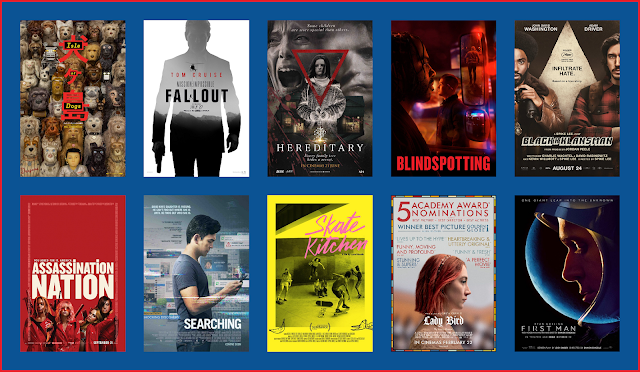Jojo Rabbit Review
(A version of this article originally appeared on kernelnow.com / mynewslike.com)
A comedy about Hitler.
A comedy.. about Hitler. That’s the absurd if reductive premise to Jojo Rabbit, written and directed by cinema’s surprising starlet Taika Waititi, who alongside credits in both franchise and indie fare now holds the dubious distinction of being “the only choice” that Fox Searchlight had in mind to play history’s most famous genitally-challenged racist/dictator/mass-murderer.
To be fair, he’s not EXACTLY playing Hitler. Instead, he’s playing an imaginary version of “der Führer” that exists in the mind of Johannes ‘Jojo’ Betzler (Roman Griffin Davis), a ten year old boy besotted with one of the world’s most charismatic tyrants at an age where youngsters crave such glorious heroes.
It probably doesn’t help Jojo’s cause that his home life features a distinct absence of the supposed “male role model” who isn't his tyrannical leader to latch upon, as his father is in some capacity off fighting the war. His mother, Rosie (Scarlett Johansson) “does what she can”, but even her charm and candor cannot stop Jojo’s surrender to Hitler’s apparently irresistable rhetoric.
 |
| Look who’s come to dinner! (source: Fox Searchlight Pictures) |
Of course, there is more to the Betzlers’ story to be found than just make-believe tyrants and dinnerside debates. Imagine Jojo’s surprise when, in the cracks of his supposedly-patriotic family home, he discovers his ultimate enemy – a Jew. A freak, self-inflicted leg injury is all that stops the Hitler Youth diehard from goose-stepping, and so this particular development brings into his life fear, aggression and mistrust all in the form of this teenage girl, Elsa (Thomasin McKenzie). She teases and test him in an effort to maintain her (for-now) safe position in life, and perhaps even challenge Jojo’s.
It’s from this point on that the film evolves from a modern satire in the vein of The Favourite into a warped coming-of-age tale. The two youngsters are, for very different reasons, now forced to consider a life outside of the bike-riding and dancing that their parents may have dreamt for them. Suddenly, emotions and hormones become subterfuge and tragedy.
 |
| This closet is in very real danger of holding literal skeletons.. (source: Fox Searchlight Pictures) |
This, then, clearly isn’t JUST a “funny film about Hitler”. As camp
and hysterical as Waititi plays Hitler (both traits which would have
infuriated his real-life counterpart), his is a smart and studied
portrayal that knows EXACTLY when to terrifyingly launch into one of the
dead cleric’s frenzied addresses. This is one of the film’s few issues,
as discerning audience member will surely find themselves questioning
every time Hitler “plays for a laugh”. Thus, it is in Johansson
that most of the film’s promised whimsy is to be found, as her Rosie
desperately tries to protect her boy from what is not far off being the
end of the world. The absurdity of this situation is not lost on
characters like Sam Rockwell’s disillusioned Nazi captain, a
counter-culture superhero-in-waiting who cannot escape his place in the
world nor in history.
 |
| It takes a village to raise a child.. fascist? (source: Fox Searchlight Pictures) |
The trailer’s lead out punchline came from Jojo’s best friend Yorki, played by a seemingly underrated Archie Yates. He deadpans “It’s definitely not a good time to be a Nazi”, a line that brings with it the eerie and unspoken suggestion that there WAS, at some point, a good time to be a Nazi. Jojo’s interpretation of Hitler as essentially a source of comfort for his young counterpart, embodies this – not even a child would show such admiration without a nationwide vote of confidence. It’s in this absurd notion and the accompanying subtextual warnings that Jojo Rabbit becomes its own – where the film becomes more than just a comedy about Hitler. This is a story of a group of people who have been willed into thinking themselves worlds apart, one deft and poignant whose extreme reality makes one thing clear: whatever these characters may expect, the Nazis have other plans.



Comments
Post a Comment